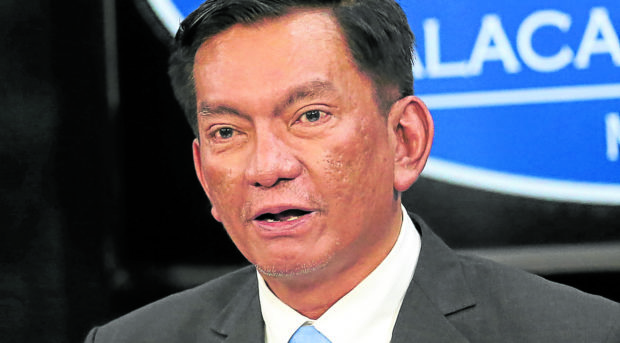
FILE PHOTO: Albay 2nd District Rep. Joey Salceda. INQUIRER FILES
MANILA, Philippines — Recognizing the promising “ukay-ukay” (used clothing) market, Albay 2nd District Rep. Joey Salceda believed it is time to take action to repeal the law banning their importation into the country.
Salceda, who chairs the House committee on ways and means, said they will craft a bill to abolish Republic Act No. 4653 which was enacted in June 1966. This law bans the importation of used clothing and rags to safeguard the country’s health and dignity.
According to Salceda, the ukay-ukay industry is estimated to be worth P18 billion.
“We will take it up and move to repeal the [law] subject to standards prescribed by the Department of Health (DOH),” he said in a statement on Tuesday. “A locator in Clark even imports used clothing that they sort. They reexport the usable clothes and use the rest as rags.”
“There is a USD 28 billion market for used clothing. In fact, supermarkets there already sell used branded clothing. These fashion stores already accept used clothing,” he added.
Salceda said he will rather legalize the importation of used clothes and place health standards to ensure public safety than have an underground sector deemed illegal by the law operate on its own.
“I would rather that we place DOH standards and allow ukay-ukay businesses to finally register, instead of having such a large underground sector that we just choose to ignore, because it’s big enough to provide jobs but illegal,” he pointed out.
Legalizing ukay-ukay emerged after Senator Raffy Tulfo proposed authorizing importation of such items since they can be taxed for additional income of the government.
Tulfo said it will be better to legalize the importation of ukay-ukay if the Bureau of Customs is having difficulty regulating or stopping its entry into the country despite the law banning it.
READ: Can’t control ‘ukay-ukay’ imports? Tulfo proposes legalizing it for taxes
Salceda said there are actually tariff lines for used clothing even if the law currently deems it illegal – 15 to 20 percent for countries without trade agreements and zero persons for fellow Asean countries.
He also pointed out that importing and selling these goods seem to be already legal because the police do not raid such shops.
“In fact, we have tariff lines for ukay-ukay. 15-20 percent for used clothing from countries with which we do not have trade agreements, and zero percent for ASEAN countries. Major sources will include the United States and Europe, which we do not have free trade agreements with, and Japan, with which we do,” Salceda said.
“Law enforcement does not raid ukay-ukay stores. Ukay has always been available as an option. For humanitarian reasons, we import ukay-ukay. Even apprehended ukay imports are eventually donated to disaster victims. And no one thinks it’s a bad idea to do these things. Ukay-ukay has been legal in all but the law itself,” he added.
RELATED STORY
Gatchalian: Time to revisit law prohibiting ‘ukay-ukay’ imports